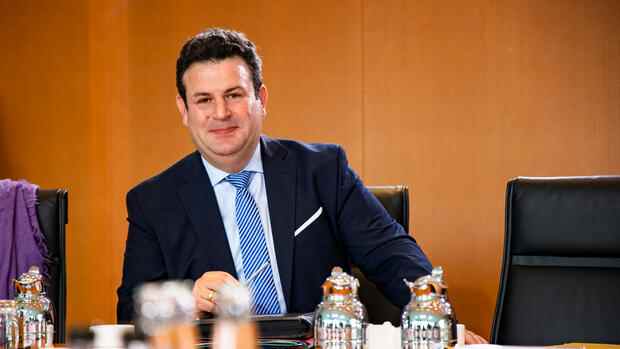“Germany needs qualified specialists to remain economically successful.”
(Photo: IMAGO/Emmanuele Contini)
Berlin The federal government wants to make it easier for foreign skilled workers to immigrate to Germany. Federal Minister of Labor Hubertus Heil (SPD) has now given key points for the planned legal changes in the departmental vote.
“Germany needs qualified specialists to remain economically successful,” said Heil. Therefore, on the one hand, one relies on training and further education as well as a higher labor force participation of women. “But we also need significantly more migration of skilled workers,” emphasized the minister. “As a coalition, we are paving the way for this.”
As was learned from government circles, changes are planned, among other things, in the recruitment of skilled workers, in the recognition of professional qualifications, in language training and in the social integration of immigrants. Heil and Interior Minister Nancy Faeser (SPD) had already outlined the first basic features in July in a guest commentary for the Handelsblatt.
>> Read the guest article by Nancy Faeser and Hubertus Heil here: How we can attract more foreign skilled workers
Top jobs of the day
Find the best jobs now and
be notified by email.
In the past, voices from business have been raised to leave it up to employers to decide which qualifications they want to see from foreign applicants. The government is now taking this into account by allowing a recognized specialist in Germany to work in any non-regulated profession. For example, a trained carpenter from Spain could also work in sales in this country.
For interested parties who want to come to Germany with the so-called Blue Card EU to work, the level of the required minimum salary thresholds will be lowered. This also applies to IT specialists, for whom the language requirements are also reduced.
Foreigners who have a job offer as a skilled worker in Germany should also be allowed to enter the country and work if the equivalence of their qualification with a German qualification has not yet been proven. You will then have three years to obtain full recognition. In order to set incentives for this, immigrants with recognized qualifications and existing language skills should be able to obtain a permanent settlement permit more quickly.
The coalition also wants to abolish the priority test for foreigners who want to come to Germany for training. The Federal Employment Agency (BA) then no longer has to check whether someone from Germany or another EU country is interested in the apprenticeship position.
Read more about the skills shortage and immigration here
Professional experience is to be weighted more heavily as a criterion in the future, as was further learned from government circles. Foreign specialists with a vocational or university degree and at least two years of professional experience should be able to work in their traditional field of activity in Germany if they exceed a certain salary threshold. It is then no longer necessary to prove the equivalence of the professional qualification.
The third component of the concept is the “Potential Pillar”, as Heil and Faeser had already outlined in their guest article. It is aimed at foreigners who do not yet have a German employment contract. The “chance card” is introduced for them, for which the FDP in particular had campaigned. A points system is used to assess whether an interested party is a suitable specialist in Germany based on criteria such as qualifications, language skills, professional experience or a connection to Germany.
In order to cushion staff shortages like in the summer at the airports, the federal government also wants to allow workers without professional or academic qualifications to enter Germany for a limited period of time. For these cases, the BA should set quotas for certain sectors. The condition is that the immigrants fall under a collective agreement.
The quota is to be increased for the Western Balkans regulation. The rule allows citizens from Albania, Bosnia and Herzegovina, Kosovo, the Republic of North Macedonia, Montenegro and Serbia to work in Germany even without formal qualifications. This is currently limited to a maximum of 25,000 people per year.
There are also plans to intensify location marketing abroad and to further develop pilot projects for the recruitment of skilled workers in cooperation with business associations such as the DIHK or the ZDH. The range of language courses at home and abroad is to be expanded and made more cost-effective for the participants.
According to information from government circles, the cornerstones should now quickly become draft laws, on which the federal cabinet should then decide if possible in the first quarter of next year.
More: Opinion by BA Board Member Vanessa Ahuja: Six points the new immigration law should include

